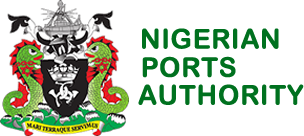In a bold step toward repositioning Nigeria’s maritime sector for global competitiveness, the Nigerian Ports Consultative Council (NPCC) has announced plans to collaborate with the British Ports Association to drive efficiency across the nation’s seaports. The initiative, described as a strategic partnership, is expected to deepen reforms and align Nigeria’s port operations with international best practices.
This was made known by the Chairman of NPCC, Mr. Bolaji Sunmola, during the council’s quarterly meeting held in Lagos on Friday. The meeting, themed “Digital Information and Data Management for Sustainable Marine and Blue Economy”, also witnessed the formal inauguration of the council’s pioneer Board of Trustees, marking a significant milestone in the NPCC’s transformation drive.
Sunmola revealed that an NPCC delegation is scheduled to visit London soon, where they will engage with stakeholders in the British maritime industry to exchange ideas and explore innovative solutions to some of the pressing challenges facing Nigeria’s ports. He described Nigeria’s seaports as the arteries of the economy, stressing that every inefficiency within the port system carries a ripple effect on national productivity.
He said, “Every delay in customs processing costs the country valuable revenue. Regulatory inconsistencies weaken investor confidence. But every innovative solution and collaboration brings us closer to transforming Nigeria into a regional maritime powerhouse.”
The NPCC chairman reiterated that the council is not operating in isolation, but rather as a vital bridge connecting government agencies, private sector players, and maritime professionals. According to him, the council’s expanded role and responsibilities are being strengthened by the newly inaugurated Board of Trustees, which he described as a body bringing a wealth of experience and strategic insight to the table.
Sunmola assured stakeholders of the council’s readiness to continue proposing bold reforms, challenge outdated systems, and push for decisive action to address long-standing bottlenecks in the ports and shipping sectors. He expressed optimism that with the active involvement of the BoT and support from maritime stakeholders, the council would experience improved capacity, visibility, and financing.
Also speaking at the event, NPCC Vice Chairman and Senior Advocate of Nigeria, Mrs. Jean Chiazor Anishere, disclosed that the council has taken concrete steps to institutionalise its operations. She noted that the NPCC has now been officially registered with the Corporate Affairs Commission, thereby enhancing its legitimacy and operational scope.
Anishere highlighted recent partnerships as part of the council’s restructuring, including a Memorandum of Understanding signed with the Nigerian Ports Authority to improve port operations. She also mentioned collaborations with the Council for the Regulation of Freight Forwarding in Nigeria aimed at capacity building and efficiency in cargo handling.
She further stated that the NPCC has engaged with the Nigerian-British Chamber of Commerce, the Nigerian Employers’ Consultative Association (NECA), and the Federal Ministry of Industry, Trade and Investment, among others, in a bid to align its strategies with broader national and international development goals. According to her, the council has secured a stand at the upcoming Offshore Technology Conference in Houston, Texas, scheduled for 2025, signaling its readiness to showcase Nigeria’s maritime potential on the global stage.
In a goodwill message delivered at the event, the Director-General of NECA, Mr. Adewale Smatt-Oyerinde, represented by Mr. Thompson Akpabio, urged the NPCC Board of Trustees to approach their roles with commitment and vision. He called on the council to lead conversations around maritime policy reform and consider sponsoring relevant bills to enhance efficiency and competitiveness in the ports sector.
Akpabio reaffirmed NECA’s readiness to collaborate with the NPCC in promoting a better operating environment for all stakeholders. He also stressed the importance of inclusive policy formulation, urging the council to consider the views of labour unions, port workers, and private operators in their deliberations.
Adding a scholarly perspective, Professor Bamidele Badejo of Lagos State University, in his paper presentation, identified poor data systems and outdated digital infrastructure as major stumbling blocks to the development of Nigeria’s blue economy. He emphasized the need for a reliable and secure data management framework that would support innovation, sustainability, and national security in maritime operations.
Prof. Badejo also raised concerns over data privacy, noting that while open access is crucial for research and development, a careful balance must be struck to protect sensitive information and commercial interests.
The newly inaugurated NPCC Board of Trustees comprises prominent figures in the maritime industry, including the former Executive Secretary of the Nigerian Shippers’ Council, Hassan Bello; Chief (Mrs.) Chinwe Ezenwa, CEO of Lelook Bags Academy; Alhaji Muhammed Bambado; Alhaji Abayomi Adigun; Mallam Bello Gwandu; Mr. Bolaji Sunmola; and Mrs. Jean Chiazor Anishere, SAN. The inauguration was officiated by retired Justice Folashade Bankole-Oki.
With this latest move, the NPCC appears poised to take a more proactive role in shaping Nigeria’s maritime future, leveraging both local insights and international partnerships to improve efficiency, transparency, and competitiveness across the nation’s port operations.
